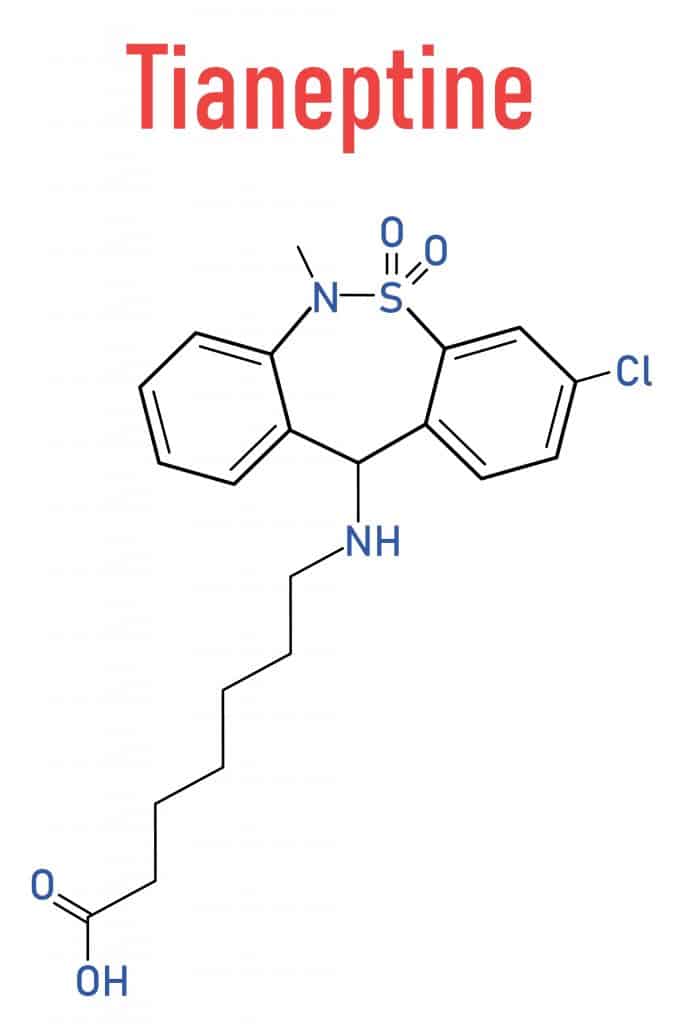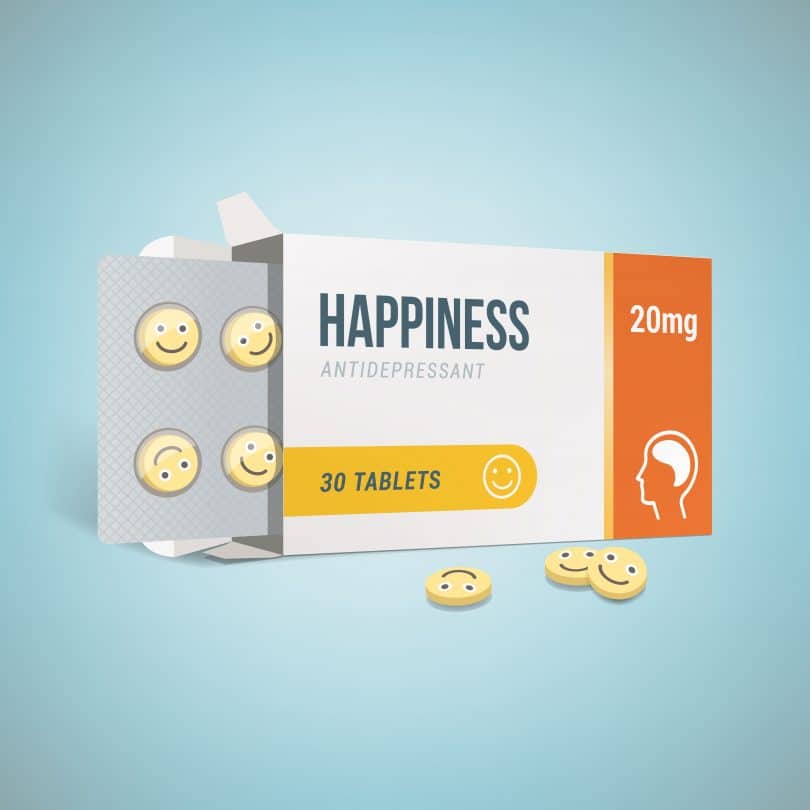Some, like the world of Western medicine, look at drug use as a medical issue. Others see it as a consequence of the stress of different factors of life. No matter how you look at it, there’s no getting away from it. And it seems like people will do whatever they can to feel better somehow. The latest example is dubbed ‘gas station heroin’. But is there really a threat here; or is this governmental subterfuge in light of the growing opioid issue?
What is gas station heroin?
No, it’s not a Lou Reed song, though it sounds like it could be. And it’s not the title of an art film made by an eager grad student either. It’s not exactly what most people would guess it is, because it doesn’t actually have anything to do with heroin. Heroin is an opioid, a product of the processing of opium. And gas station heroin is not in that class of drugs.
Surprisingly, it’s actually an anti-depressant of the tricyclic class of antidepressants. The official name is tianeptine, and it’s sold under many brand names, including Stablon and Coaxil. It’s technically an atypical tricyclic antidepressant in that it doesn’t necessarily work like other antidepressants. Tricyclics are used primarily for anxiety and mood disorders, and work by inhibiting the reuptake of neurotransmitters serotonin and norepinephrine, and the norepinephrine transporter. By doing so, they increase these neurotransmitters in the brain.
Thanks for being here. Check out the Cannadelics Weekly Newsletter to access email updates; and to get a load of promos for cannabis buds, vapes & smoking equipment, edibles, cannabinoid products (like delta-8), amanita mushroom extracts, and a whole lot more. It’s time to feel good, do so responsibly!
However, tianeptine is a bit different. It is used for anxiety and depression, but it’s been found that it also acts as an atypical μ-opioid receptor agonist. Which means it promotes more action at μ-opioid receptors, which is what opioids do. So the same drug causing mass issues with addiction and overdose, has at least some similar effects to this antidepressant tianeptine. Tianeptine in high doses is used for recreational use, with the main issue in withdrawal symptoms; though this relates not just to an opioid effect, but to antidepressants in general.
Back several years ago, doctor-prescribed medications weren’t the bigger problem, today they are. And not only does the following information back up how dangerous the medicines offered to us can be, this whole situation shines a light on just how bad our collective need is to get high. Whether considered an actual disorder, or a reaction to the stress of life, it indicates quite an issue when people are using anything possible, just to catch a little buzz.
The current tianeptine issue
It’s certainly not an issue like opioids, and many probably have never heard the names tianeptine or its slang name ‘gas station heroin’. But in some places, its created enough buzz to get the attention of law enforcement, and is now the subject of new worries, and new laws. One of the recent stories related to tianeptine, comes out of Mississippi.
Last month it was reported that this drug is sold, not by pharmacies, but by gas stations and corner stores, with names like Za Za, Tiana, and Red Dawn. It’s found with other supplements, and doesn’t stand out as anything special. It certainly doesn’t require any kind of prescription, though when sold as an antidepressant, it does. However, its not cleared for medical use by the FDA in America, and is only found as a prescription antidepressant in other countries. After trials in 2009, all development of the drug stopped in the US by 2012. Although why this happened, was not made clear.
In Mississippi, doctors are putting out warnings about the safety of this drug, with fear-inducing lines like this one from Dr. Jennifer Bryan, the chairman of the Mississippi delegation of the American Medical Association, “It can kill people, to be quite honest, and it’s highly addictive.” She continued about a specific case, “I had a young woman come to me, and she was a mother, and she was dealing with depression. And a friend told her about Za Za. So she tried it. And I promise you that same day, she said she could not stop, and it was so sad.”
In terms of why its on shelves at all? Bryan explains, “In sneaky situations like tianeptine, something that the FDA on the drug side has not approved for prescription in the United States due to safety reasons, can sneak in the back door as a supplement.”
Is tianeptine actually that dangerous?

There are plenty of issues with antidepressants, but is this one really *that bad, or just another example of the US government (local or federal) not liking an industry it can’t get in on? The US government loves approving dangerous medications. I mean, it regulates the legal opioid industry, making any talk of illegalizing tianeptine, a massive point-miss if all synthetic opioids (where the real death toll is) don’t follow. So while the government is great at providing us plenty of dangerous pills, it sure seems unhappy about this specific one, which it doesn’t legally sell. Opioids are legally sold.
As far as danger? I can’t find a specific death statistic. In a 2018 review that went over 25 different articles, which contained information on 65 people, it mentioned 15 overdose cases. Overdose doesn’t actually imply death, just taking too much of something. Of those 15 there were three deaths, but all involved one or more other substances, meaning the deaths cannot be put on tianeptine directly. The same report goes on to mention six other deaths, but stipulates they only ‘involve’ the drug, which makes it the same as the three deaths above. In no case has tianeptine been fingered as the only cause of death.
The thing is, I can’t find other information on fatalities at all with this drug, or any real information on disability issues. So it doesn’t sound that bad, right? Especially when opioids are taking out close to 100,000 people a year now. Yet, as those drugs are not banned, states like Mississippi are banning drugs like tianeptine. For 2021, Mississippi reported approximately 491 drug overdose deaths, with suspicion that 71.7% of them (352), were because of opioids, or related.
That same state hasn’t banned any drug associated with those overdoses. However, on March 1st, it did pass legislation to ban tianeptine via House Bill 4. If signed by the governor, the new law will ban the sale and possession of the drug. But it won’t stop any opioid use. So basically, a lesser drug which isn’t associated with that many issues (and none direct that I’ve seen) is being banned, while the #1 overdose drugs, opioids, remain as legal as before.
Where else this is happening, and why it makes no sense
Several other states also made measures against tianeptine, while doing nothing about opioids. In Minnesota its now a Schedule I substance, but I saw not one death statistic. That same state had 1,286 overdose deaths in 2021. 924 were opioid related. Michigan made it a Schedule II drug, but also failed to report any death statistics for it. What Michigan did have, was 2,738 overdose deaths in 2020, with 79% being opioid related.
It should be noted that while Alabama spoke of a crisis related to the drug, it also failed to mention even one death; which makes one wonder how the word ‘crisis’ is defined, when there are drugs out there causing tens of thousands of deaths a year. Of course, that state actually has an opioid crisis, with 343 of the 401 overdoes deaths in 2020, relating to synthetic opioids.

In Tennessee the sale of the drug was outlawed, and it was put in Schedule II of the state’s Controlled Substances list with a class A misdemeanor charge. However, once again, this was done with not one death brought up. Weird, when Tennessee reported 2,388 opioid overdose deaths in 2020. Are we perhaps having our attention turned away from the real problem, by introducing a fake one?
In Oklahoma tianeptine is listed as a drug with a Schedule II ban, but no deaths are reported. What is true, is that Oklahoma had 733 overdose deaths between 2019-2020, 36.3% of which had to do with opioids. Incidentally, meth accounted for about 64%. In Georgia its now also Schedule I. The report referenced, again, mentioned no deaths. The comparison? 2,390 drug overdose deaths in the state in 2021, with 1,718 (71%) attributed to opioids.
In Indiana, the drug was banned in late 2022, but the pattern repeats as the report mentioned no deaths attached. On the other hand, the state had 2,755 overdose deaths in 2021, 85% of which were only fentanyl, meaning synthetic opioids altogether caused more than 85% of deaths in the state. In Ohio, the ban was instituted as an emergency measure, making it a Schedule I substance. Just like the rest, it mentions no death toll with the drug, even as it continues to sell opioids with 81% of overdose deaths in 2020 (5,017 total), due to fentanyl.
Conclusion
Perhaps what gas station heroin shows us more than anything else, is that 1) people want something to make them feel good, and 2) no country or state wants an industry it can’t tax and control. These efforts seem more like subterfuge though, trying to take attention off the lack of action on the real issue, by trying to make this into one. And that doesn’t mean for a second that I think the stuff is okay, but the contradiction of caring about it at all, while doing nothing to ban opioids, makes the whole thing laughable at best.
Hello readers! Cool that you’re stopping by Cannadelics.com; a news site where we aim to get you the most provocative and interesting stories about cannabis and psychedelics. Stop by whenever possible to stay updated on what’s going on, and sign up to the Cannadelics Weekly Newsletter, so you’re never late to get the news.









